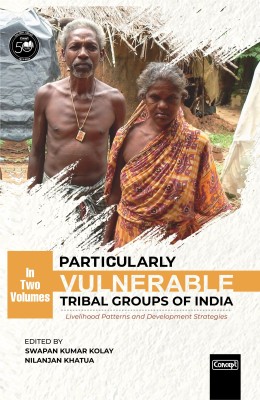Particularly Vulnerable Tribal Groups of India: Livelihood Patterns and Development Strategies (In 2 Volumes)(Hardcover, Swapan Kumar Kolay, Nilanjan Khatua)
Quick Overview
Product Price Comparison
This publication primarily focuses on various livelihood patterns of different PVTGs in India. It also critically examines the impact of different development programs on these vulnerable groups through 31 chapters arranged into five broad headings such as (I) Tribal Ethnography, (II) Ecology, Economy and Tribal Identity, (III) Socio-cultural Beliefs and Practices, (IV) Tribal Health, Food and Nutrition, and (V) Tribal Development and Tribal policy. The lack of effective implementation of various development programs has deprived them of enjoying the benefits of development. The learned contributors to the volumes have touched upon many important aspects of livelihood patterns, health, food, and nutrition that need immediate attention from the government and development agencies on issues of the PVTGs. These two volumes are the outcome of a modest attempt by the authors to update the status of traditional occupations and change the livelihood of Particularly Vulnerable Tribal Groups in India. Vulnerable Tribal peoples often have much in common with other neglected segments of societies, i.e. lack of political representation and participation, economic marginalization and poverty, lack of access to social services, and discrimination. They strive for recognition of their identities, their ways of life, and their right to traditional lands, territories, and natural resources.These volumes will be useful for anthropologists, social scientists, administrators, policymakers, planners, and students of social sciences interested in understanding tribal ethos and world views.


